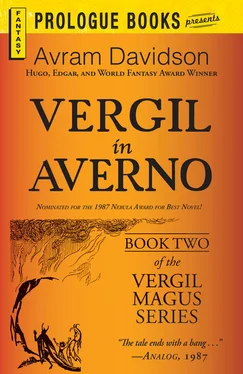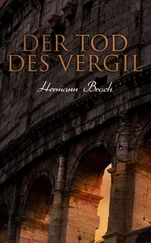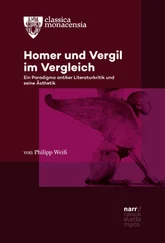Avram Davidson - Vergil in Averno
Здесь есть возможность читать онлайн «Avram Davidson - Vergil in Averno» весь текст электронной книги совершенно бесплатно (целиком полную версию без сокращений). В некоторых случаях можно слушать аудио, скачать через торрент в формате fb2 и присутствует краткое содержание. Жанр: Фэнтези, на английском языке. Описание произведения, (предисловие) а так же отзывы посетителей доступны на портале библиотеки ЛибКат.
- Название:Vergil in Averno
- Автор:
- Жанр:
- Год:неизвестен
- ISBN:нет данных
- Рейтинг книги:3 / 5. Голосов: 1
-
Избранное:Добавить в избранное
- Отзывы:
-
Ваша оценка:
- 60
- 1
- 2
- 3
- 4
- 5
Vergil in Averno: краткое содержание, описание и аннотация
Предлагаем к чтению аннотацию, описание, краткое содержание или предисловие (зависит от того, что написал сам автор книги «Vergil in Averno»). Если вы не нашли необходимую информацию о книге — напишите в комментариях, мы постараемся отыскать её.
Vergil in Averno — читать онлайн бесплатно полную книгу (весь текст) целиком
Ниже представлен текст книги, разбитый по страницам. Система сохранения места последней прочитанной страницы, позволяет с удобством читать онлайн бесплатно книгу «Vergil in Averno», без необходимости каждый раз заново искать на чём Вы остановились. Поставьте закладку, и сможете в любой момент перейти на страницу, на которой закончили чтение.
Интервал:
Закладка:
Likely it was that the Roman Emperor knew him not. It was most unlikely that any Roman Emperor would ever know him at all. Still, still, he was a Citizen of Rome, and could Averno withdraw from him the immense protection of that Citizenship? Why did he not inquire of them an answer to this question? Why did he instead ask an entirely other question? “Why do you say that I have come here to encompass the death of Cadmus?”
“Because we have seen, as though in a vision of the night, Cadmus transfixed by an arrow. And we have seen that arrow to have been of your designing.”
Vergil felt his lips open and throat and tongue move. He perhaps heard not, but in his inward soul he felt, louder, something, than the loudest clap of thunder. The earth moved and shook, and yet it did neither shake nor move. And on the table in front of him, whose polished surface mirrored nothing now, he saw the fallen, shattered rose.
He saw the rose.
Out in the streets again, and feeling rather vertiginous, he asked, “Is there somewhere very near where I might for a moment sit?” No response coming, he looked around for his one-time beadle, saw him not. Saw no one else. No one behind him, that is. And no one at either side of the street. He saw no bench in an alcove; he saw no alcove. Neither was there so much as a doorstep or — sill. For lack of anything better, and rather than sit upon the street itself or squat upon his haunches, he leaned against the wall. It was all still so very odd — still, or, rather, again: the odd angles. The (he clearly realized this rather suddenly) absence of doorways. . could he be in some certainly peculiar street consisting only of the back-ends of properties? It was not impossible, but that there should not be even a tiny door for the servants …
For one moment more he was not even certain where the next corner was, so odd was the way the area was laid out, and then he saw some figure cross the street and vanish behind a wall; therefore behind the wall must be a corner. Suddenly his conjectures were swallowed up, as the details of that swift-passing figure came, by not quite afterthought, into his mind. It had been an armed man: What was such doing in Averno? — in any city, for that matter? — wherein, unlike the open countryside, only a soldier was, supposedly, permitted armed? It was possible that the man had some sort of license, a private watchman might obtain one — rather, his master might, on his behalf — but what was the weapon? A sword? Perhaps not. Certainly Vergil had observed a weapon. Ah, but the fellow had been helmed as well as armed! And a rather immense helmet it had been, too. This made no sense, no watchman would wear more than, at most, an iron cap. Had there not been something equally unusual about the way the man walked? — almost, stalked? Unusual, but certainly not unfamiliar. He had seen it, seen it a many times more than once, and now he recollected where.
Vergil was by choice no great frequenter of the Games, “the Games were not what they were,” everyone said so. Whatever they were now, it was not to his own taste to go to them; but sometimes situations other than his own taste obliged him. That cautious, slightly stiff-legged stance or walk, that not-quite-crouch, relentless tread: yes. At one place on the sands stood. . whichever. Toward him came prowling the other. The retiarius, perhaps, with his fisherman’s net and his trident for killing a great fish. Perhaps the gladiator was not a retiarius. Perhaps he was one of those who used the deadly short sword, Thracian-style.
His, Vergil’s, giddiness, which had seemed for a moment better, was now worse. It was of a quite different sort than that which had afflicted him at the end of the secret meeting of the friends of the king; it was something quite different and something quite worse, and it had to do with the man whom he had seen -
— was now, suddenly, seeing again: and nearer -
— and now again crossing the street, again at an angle at which no street should be -
— and nearer -
— wearing the great Thracian helmet, and yet carrying over one arm the reticulated net, a part of it in one hand ready to cast over the one he stalked -
But this was quite wrong, this was all quite wrong, it was much wronger than, merely, an armed man clearly not a soldier and within the city’s walls; it was wronger by far than a gladiator in full trappings walking in broad daylight down an open street. It was the trappings themselves were wrong, even though Vergil could still not determine the nature of the weapon, if sword, if trident.
The retiarius would not be wearing a Thracian helmet. The Thracian would not be carrying the weighted net of the retiarius. What. What?
Suddenly it became of immense, intense, of the utmost importance to know what time of day it was. If noon, all might yet be well; perhaps the man was another lunatic. Cadmus? No. Familiar. . now Vergil realized the man had, at this last crossing of the street he stood in, seemed familiar. But Cadmus, no. What time was it? What hour of morning had he, Vergil, started out? How long had he been out? He cast his eyes all round about. His heart swelled, he felt cold. It might be before noon, it might be after, noon it could not be: There were shadows in the street, short ones, but that was of no matter.
The man, armed, purposeful, seeking his intended prey, he in the Thracian helm, had of an utter certainty cast no shadow.
Thracian! Thrax!
Vergil had turned and loped away. Where he found a corner, he turned, down that way he fled. When he found another corner, he turned therein and fled down whatever street he fled. . and fled…. Much time he did not think, but he was, in some other way, engaged in something much resembling thought: he was counting. He was not at first aware that he was counting. But he had not even stopped counting when by chance he bethought him of something someone had said, someone else, who? it mattered not who, had said, “… here in the web …”
Here in the web!
Was it the name of this odd, odd area, section of the city? What else might it be? What had Thrax in hand, on arm, to cast over to entrap, before thrusting home the sword or trident (and it could not at all matter which)? A net. What was a net? A web. Those who spun, did they not often, also, weave? Weft and woof: what was weave but web? And all the while, in the back of his mind, at the bottom of his mind, he heard a thrumbling, a buzzing, a buzzing as of some gigant fly: and he saw the huge spider spinning, spinning, spinning, to entrap the fly: a web.
And all the while, above, beneath, beyond these dread, dread thoughts, he heard a voice, slow and calm and steady, saying, Third right, back one, two left, left four, back thrice …. He stopped. He did not stop the thinking voice, he did not stop — even — moving: running it was he stopped. He kept on walking, but now he walked crab-style, sidewise, so as to keep in sight both right and left. What weapons had he with him, to counter, if encountered, the Thrax face-to-face, armed with either sword or trident? He had his knife in its sheath: much good might this do him, save of course the Thrax slipped; the Thrax, the retiarius, as all and every gladiator, was trained to walk so as not to slip. It must be some other weapon, different, quite different indeed, on which he must depend. And he depended now upon his memory. And he drew it forth, as knife from sheath, as sword from scabbard. Third right, back one, two left, left four, back thrice …. There was more, of course more: but this was the key. He knew that now. It remained but to be for one full moment quite, quite calm, to act as though no one pursued him, and to reflect. And the one full moment he needed not, it became clear in less than that: Third right, back one, two left, left four, back thrice. The key opened the lock, the lock moved the door. He was in the one hundred and twelfth labyrinth, or maze, set down in the book called the Patterns of Parthenopius. He had studied them for years and years, had he not studied them a decade? Had he not, having learned them, every night gone through them all for one full passage of the larger sandglass, every single one of the labyrinthine mazes there delineated. . gone through them in his mind, of course; merely he’d checked them with those in the book when he had done.
Читать дальшеИнтервал:
Закладка:
Похожие книги на «Vergil in Averno»
Представляем Вашему вниманию похожие книги на «Vergil in Averno» списком для выбора. Мы отобрали схожую по названию и смыслу литературу в надежде предоставить читателям больше вариантов отыскать новые, интересные, ещё непрочитанные произведения.
Обсуждение, отзывы о книге «Vergil in Averno» и просто собственные мнения читателей. Оставьте ваши комментарии, напишите, что Вы думаете о произведении, его смысле или главных героях. Укажите что конкретно понравилось, а что нет, и почему Вы так считаете.












